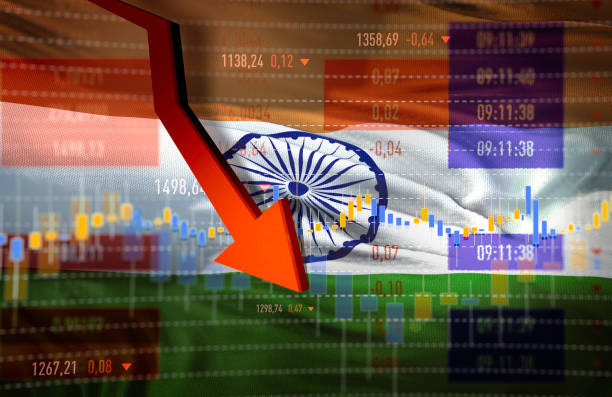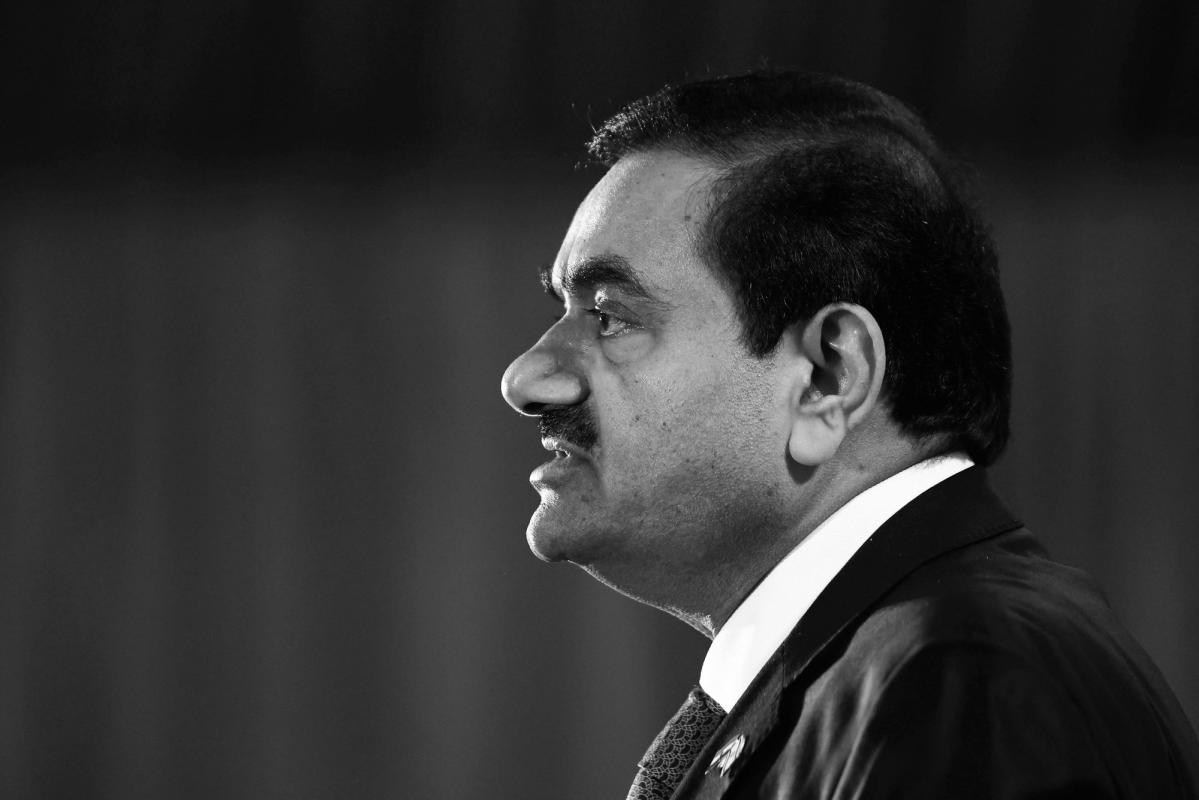$108 billion problem of Adani has shattered investor confidence in India.

The sudden lethal blow to Adani Group.
Only a decade of days ago, Gautam Adani’s massive energy-to-ports business seemed majestic and unbeatable. Now, a scathing short-seller onslaught has landed the billionaire in the storms of the largest business crisis of his career, raising wider, darker issues about the nation’s confidence as a global economic engine and a destination for international investors.
The drop in market value of Adani securities.
The Adani Group’s market value has dropped by $108 billion after Hindenburg Research suspected it of securities and financial fraud in a report the earlier month. But it wasn’t until last week, when the billionaire canceled a $2.4 billion share sale, that the potential for long-term effects became obvious. Investors were unconvinced by the billionaire’s argument. He was earlier ranked No. 2 on the Bloomberg Billionaires Index but has since dropped to No. 21.
What does the Hindenburg Report claim?
The fair and well-known US short seller has reignited suspicions about the billionaire’s corporate governance. Whether its findings are ultimately shown to be accurate or not, the effect of its almost 100-page study threatens to erode investors’ confidence in India and the country’s regulatory system.
In its analysis, Hindenburg argued that the billionaire influenced offshore shell firms for fund laundering and looted from publicly traded enterprises. The short seller, who positioned their investments in Adani securities abroad, called the company’s spectacular development “the greatest fraud in business history.” While many of the assertions had been fanning within the Indian investment elite and media for years, their appearance in the global debate emerged to spark a confidence crisis. Hindenburg has routinely refused to comment on its Adani short bets.
Is the confidence in Indian equities declining after Adani matter: an opinion of investors across the world!
Things are shifting very quickly in the market, with overseas investors perhaps reassessing the perils of investing in Indian shares, said Singapore-based Gary Dugan, CEO of Global CIO Office, an asset manager and financial advice business. This reevaluation encompasses governance, business transparency, nepotism, and indebtedness.

If asset values continue to fall and investor confidence in the billionaire’s empire is shaken, it will be a blow to India’s economic story at a critical juncture. Apple Inc. is growing in India to diversify its exposure to China, where a government crackdown on firms and an inconsistent economic policy have made investors nervous. The fact is that Adani’s crisis comes at a bad moment for India since China is reopening, said Alicia Garcia Herrero, Natixis SA’s head economist for Asia Pacific. “Foreign investors are certainly paying attention.
The Adani-related news is creating a substantial amount of negative attention, which may affect investor interest in Indian stocks, said Jian Shi Cortesi, portfolio manager at Zurich-based GAM Investments, which manages over $80 billion in assets. While they do not picture Adani pulling down the whole Indian stock market, they believe it may cause India to underperform other Asian markets like China.
However, other senior emerging-market investors, including Mark Mobius, are unconcerned about the tragedy and reject the prospect of a larger contagion. This does not represent the overall sustainability of the Indian market and economy, Mobius, co-founder of Mobius Capital Partners LLP, explained. He added by saying that they don’t make conclusions solely on the index but on the long-term survival of individual corporations.
Hugh Young, Asia head of Abrdn Plc, which handled over $600 billion in assets till June, stated that his fund is waiting for the market to recover following the dips.
Is the harm already been done?
Currently, Adani enterprises account for eight of the ten worst-performing equities in the MSCI Asia Pacific Index this year, while bonds issued by the Indian billionaire’s flagship company have plunged below distressed levels in US trade.
The instability has not only impacted Adani Group shares but also banking institutions that have lent to the Adani firms. Since the release of the Hindenburg report, the government-controlled SBI (State Bank of India) has dropped 11%. According to data collated by sources, foreign institutional investors withdrew a net $2 billion from India’s stock market from Jan. 27 to Jan. 31, the largest three-day selloff since March.

The defense by team Adani.
Adani responded in 413 pages, calling Hindenburg’s actions “nothing short of planned securities fraud under relevant law”.
Even casual observers can see that Adani’s eroding wealth can disturb the fundamentals of the Indian economy in ways that few other business crises can. Adani’s first line of defense is to intertwine the fate of his business with that of Asia’s third-largest economy.
Adani emphasized in a televised speech hours after canceling the share sale that the company’s fundamentals are robust, the financial sheet is sound, and the move would have no impact on present operations or plans. At the end of his broadcast speech, he signed off with two words: “Jai Hind,” which means “Victory to India.”
Days before, Jugeshinder Singh, the company’s Chief Financial Officer, appeared in front of a billowing Indian flag to deny Hindenburg’s charges.
The contributions of the magnificent Adani empire to the Indian Economy.
For many years, Adani enterprises have provided the type of infrastructure projects that India needed. Every day, his integrated enterprises touch hundreds of millions of Indians, from the chain of ports that transport coal from Adani mines to his power plants that send electricity to homes through his transmission units.
According to corporate presentations, Adani Group is the largest private operator of India’s sea and airports, handling 33% of Indian air freight traffic and 24% of its shipping ability, in addition to constructing more than 3,100 miles of the country’s road network. The company plans to invest $70 billion in renewable energy projects that will be critical to PM’s triumph of India’s Net Zero aspirations.
The group’s growth has been driven by leverage, with net debt of over 1.6 trillion rupees ($19.7 billion) – yet another source of anxiety for investors. The conglomerate’s dollar debt does not mature until 2024. An Adani entity paid for scheduled coupons recently, indicating that its debt servicing ability in the short term appeared secure.
Following the release of a relatively ambitious budget on February 1, the national government now confronts doubts about whether its infrastructure project ambitions would be derailed alongside Adani, one of its most crucial investors.

Adani’s journey and his closeness with the current PM.
Adani, 60, has known the current PM for many years. And his company, which invests in capital-intensive projects including airports, power plants, and data centers, is central to Modi’s growth strategy. As a national champion, the businessman has matched his interests with Modi’s development aims, often stepping in when the territory lacks money or expertise, resulting in the creation of thousands of employees.
There is no distrust that Adani’s star is inextricably linked to Modi’s political trajectory – the juxtaposition of the Adani Group’s interests with India’s national interest is alarming, said Milan Vaishnav, head of the Carnegie Endowment for International Peace’s South Asia Program.
Adani’s origins were unremarkable. A college dropout from Gujarat, he dabbled in diamond dealing in Mumbai before returning home to establish the family’s plastics import-export firm, Adani Enterprises.
Following that, his rise coincided with the rise of Modi, who was elected chief minister of Gujarat in 2001. Their friendship was reinforced when Adani backed Modi when the latter was accused of failing to prevent one of India’s deadliest sectarian riots the following year, which killed over 1,000 people, most of whom were Muslims. The accusations, which Modi has always rejected, were ultimately dismissed by the country’s highest court.
The billionaire subsequently assisted in the establishment of the biennial Vibrant Gujarat forum, which uplifted the PM’s image as a vibrant development-focused leader who gets things done. A highlight of their friendship was Modi’s attendance at Adani’s wedding reception for his son Karan in 2013, a year before Modi was elected Prime Minister of India.
The last call.
Adani has arisen as the poster child for Modi’s administration’s use of private funding to build infrastructure and local manufacturing since he took office. The market fall has bled into politics, with Modi’s competitors detecting susceptibility as the conglomerate’s power to continue delivering is called into suspicion. The scuffle dominated India’s budget declaration, as opponents yelled the billionaire’s name. Following the Hindenburg accusations, lawmakers demanded a probe of the Adani Group. Will it have an impact on foreign investment? Is there a brewing smell of distrust in Modi now? Let’s see, where the Adani Saga takes the great Indian Economy to!
edited and proofread by nikita sharma





